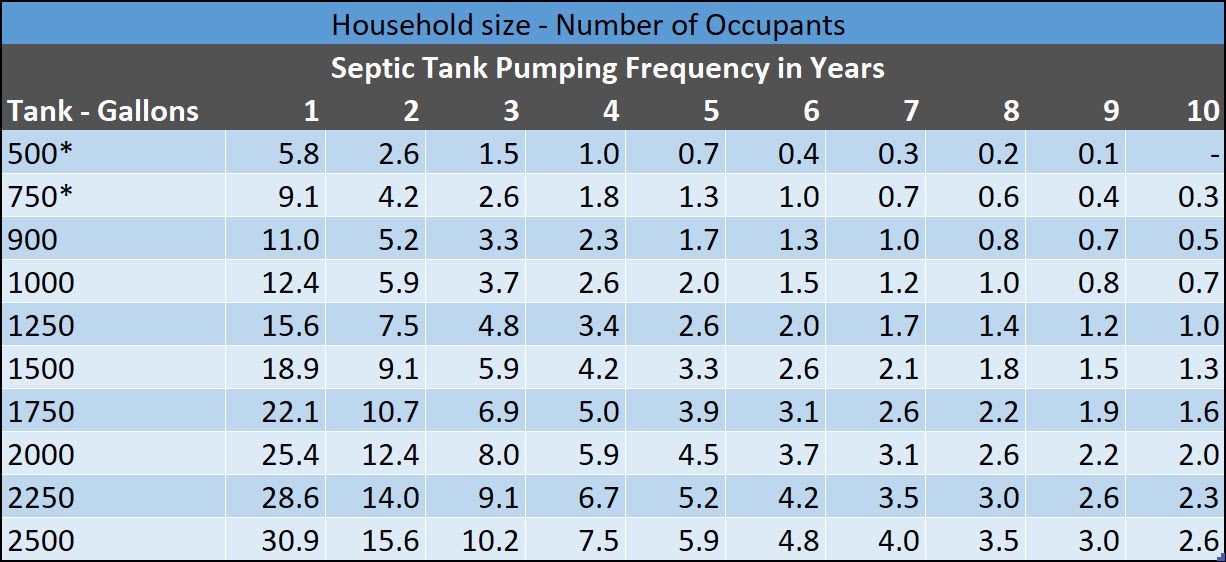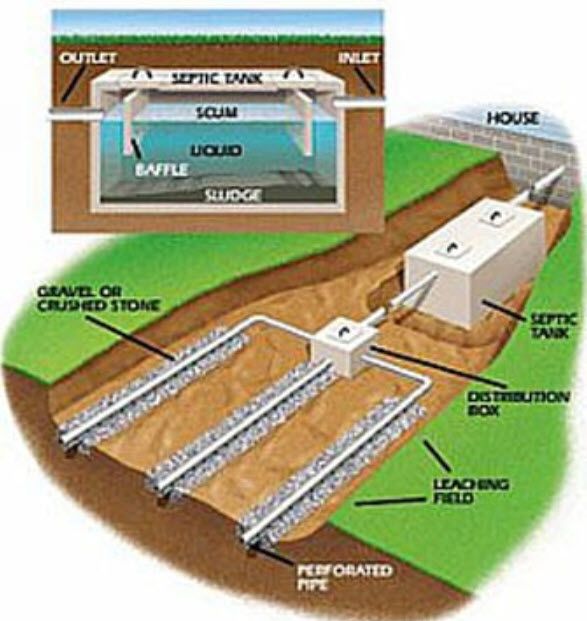

As a general recommendation, your septic tank should be pumped every 3 to 5 years. Pumping frequency depends on the amount of water and waste used, the size of the tank and the septic system's overall condition. Before we begin pumping out the tank, we can estimate the scum and sludge layer thickness. With this information, we can help you judge the rate at which the solids accumulate in the tank which will help you gauge pumping frequency. Most households will fall in the 3 to 5 year range for septic pumping. Refer to the chart below for septic tank pumping estimation based upon tank capacity and household size.
Our well-maintained trucks have high CFM pumps which ensure maximum suction power and speed; and we use high capacity tanks to accommodate larger pumping jobs and commercial pumping. Our state-of-the-art equipment and well-trained staff together make AAA Advanced Septic Tank Cleaning Rogue Valley's preferred, quality choice in septic pumping.

Maintaining your septic system is an important part of taking care of your home and the environment. A standard septic system consists of a septic tank and a drain field.
A septic tank is typically a concrete tank underground in which sewage is collected and allowed to decompose through bacterial activity before draining by means of a leaching or drain field.
Inspect your septic tank annually and pump it when needed or every two years. If the tank is not pumped periodically, solids escaping from the septic tank will clog the tank and can damage the drain field. If you suspect your system might not be functioning properly, give us a call. We are here to help get your system functioning correctly.
The drain field is made of a network of pipes laid in gravel-filled trenches. Effluent from the septic tank is pumped through pipes to the septic field, where the liquid drains slowly and evenly through perforations in the pipes. The liquid percolates through the gravel and eventually reaches the soil beneath, which filters it before the liquid reaches the water table.
Adhering to a few basic dos and don'ts is usually all it takes to keep both your septic tank and drain field functioning well.
DONT'S
Septic systems are designed to have a lifetime of 20 to 30 years with proper care and maintenance. Eventually, the soil around the drain field becomes clogged with organic material from years of filtering and fails the septic system. Other factors can cause the system to prematurely fail such as pipes blocked by roots, soils saturated by storm water, or poor installation.
By far though, the most common reason for early failure is improper maintenance by homeowners. When a septic system is not regularly pumped, sludge (solid material) builds up inside the septic tank, flows into the absorption field and can permanently clog it.

Look for these symptoms to determine if your system needs immediate attention:
The key to preventing your septic system from failing is proper maintenance. Regularly pumping the tank, being careful what you put down the drains and avoiding planting trees over the field or covering the system with permanent patios and home additions are important to keep the system running well.
AAA Advanced Septic Tank Cleaning, LLC offers competitive pricing, making us Southern Oregon's preferred, quality choice in septic pumping!